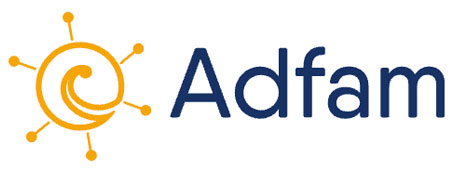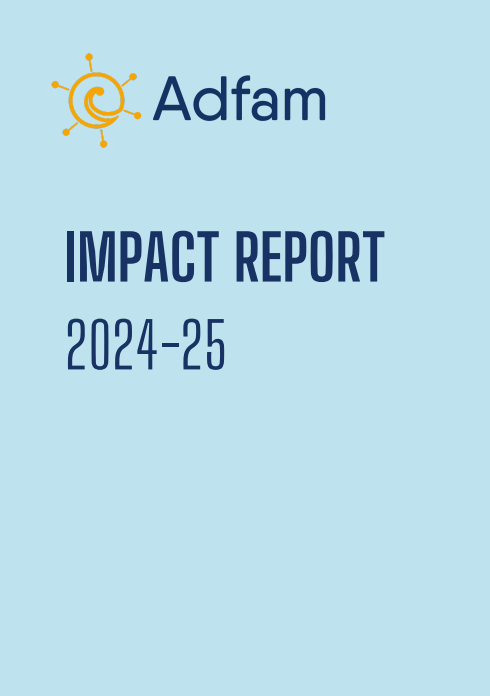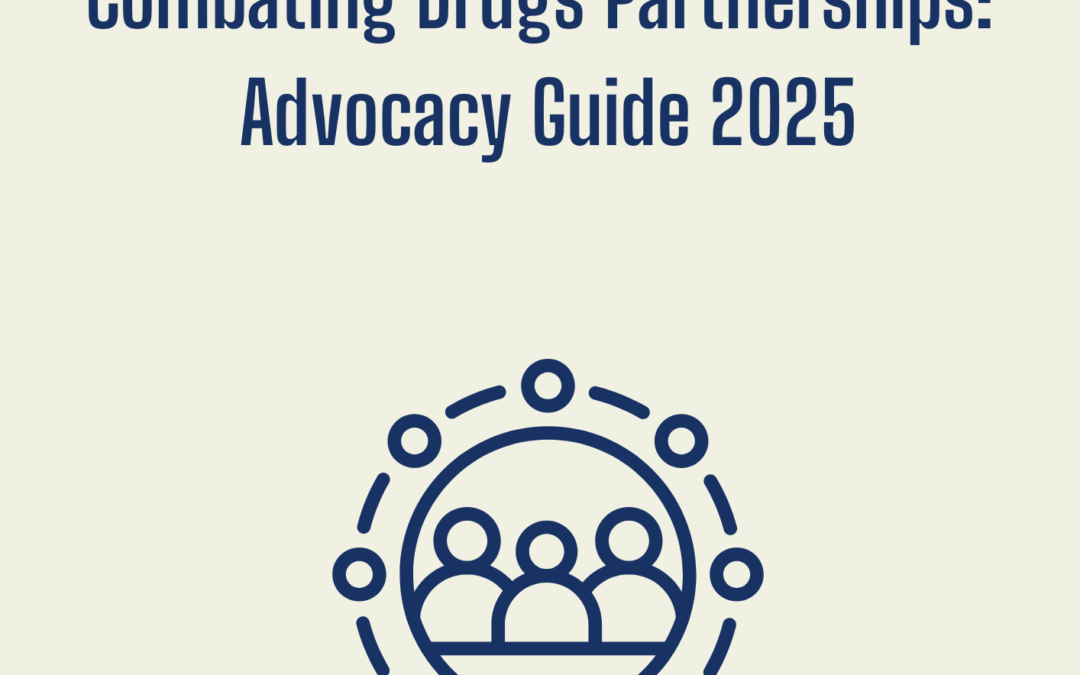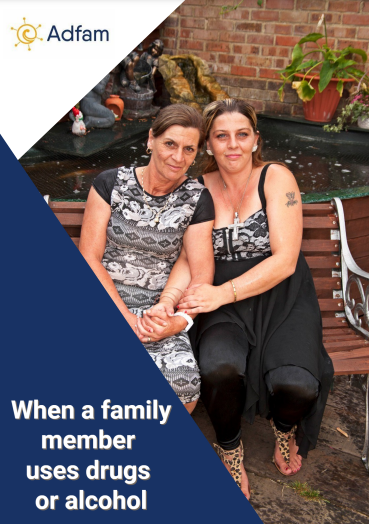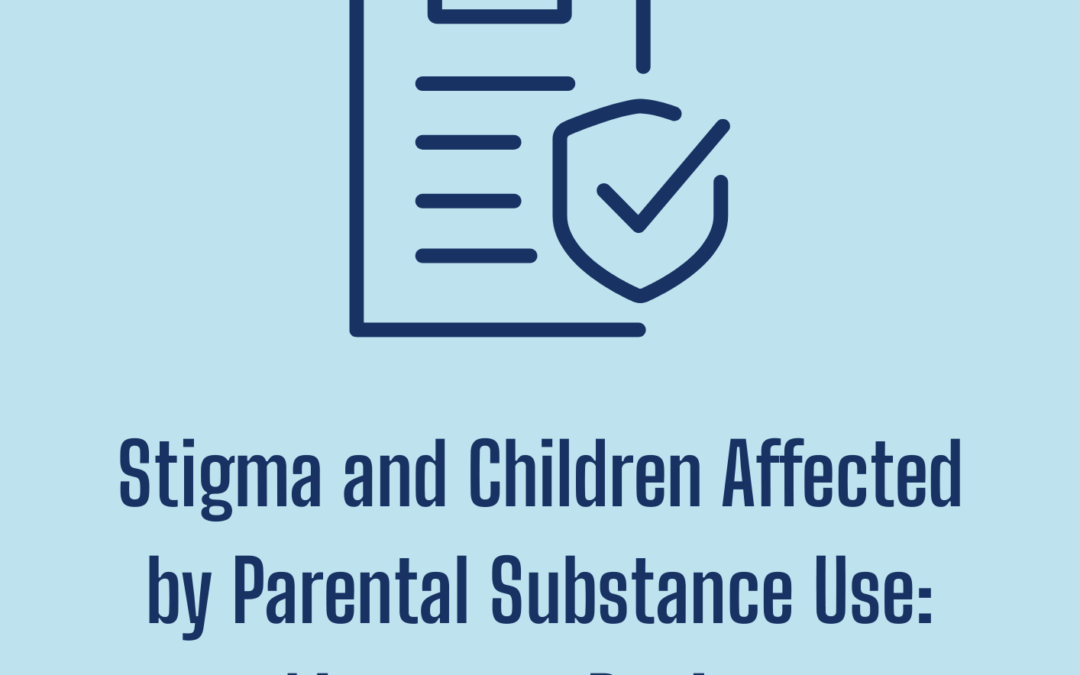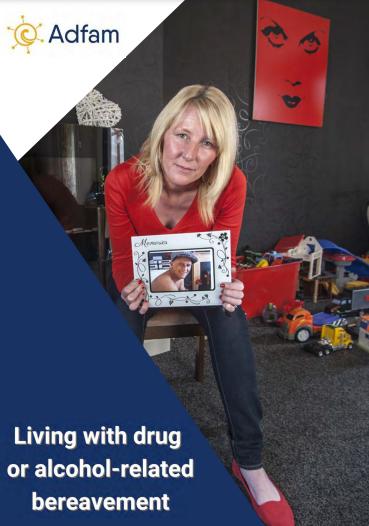We train and support frontline workers, volunteers and commissioners to build their confidence, capacity and capability. This helps ensure the provision of relevant, compassionate and effective services for families affected by substance use.
TRAINING PROFESSIONALS
Adfam has delivered specialist practitioner training on families and substance use for almost as long as it has existed – since 1984! We have run a variety of courses over the years and our courses are regularly refreshed and revised to reflect the very latest evidence and practice.
- Our core courses are now all fully accredited by The CPD Certification Service.
- For a full list of training courses available please see our training brochure.
- All courses are available to be commissioned at £850 per day when delivered via Zoom.
- We also offer ‘open’ training sessions that people can sign up to on an individual basis. These are listed on our training calendar.
To get in touch with Adfam regarding our training offer email admin@adfam.org.uk.
PROFESSIONAL CERTIFICATION
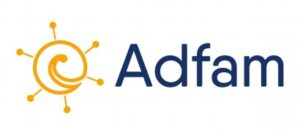
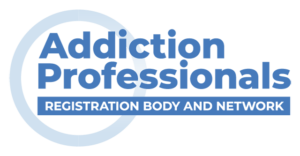
Addiction Professionals and Adfam have jointly developed a competence-based certification for practitioners supporting families affected by alcohol and other drugs. Adfam brings years of experience of working with families and Addiction Professionals bring their expertise as the professional body and membership organisation for the sector.
Addiction Professionals/Adfam Drug and Alcohol Family Worker Professional Certification is specifically designed for practitioners working with families affected by alcohol and other drug use, and outlines a unique role profile. It provides practitioners with a number of benefits:
- A professional competency-based certification mapped to National Occupational Standards (NOS).
- A role profile and commitment to the Addiction Professionals Standards of Conduct and Ethics.
How to Register:
- The practitioners’ employers assess their competence in each of the NOS units outlined in the role profile.
- Practitioners will be required to develop a portfolio of proof of competence which may be asked for as part of random sampling and which will allow them to demonstrate continued professional development in order to become re-accredited at the end of the 3 years.
- Practitioners will be asked to write a 1000 word reflective piece, addressing what is important in work with adult family members affected by a loved one’s substance use.
- Applicants will be asked to cover areas such as attitude and approach; adapting skills or knowledge from other fields to this area of work, and what models are used in work with family members.
- You should make clear how you have adapted your approach to the family member as the primary beneficiary, and how you may have changed or learned from experience.
- Please also give us a sense of the kind of topics that you would typically cover with family members and what needs you find yourself supporting them with.
Role Profile:
- Promote effective communication and information sharing. SCDCPC311
- Promote, monitor and maintain health, safety and security in the workplace. SFHSS03
- Either: Reflect on, develop and maintain your practice (young people). SCDLDSS6. Or: Reflect on, develop and maintain your practice. SCDHSC0033
- Develop practices which promote choice, well-being and protection of all individuals. ASTH416
- Contribute to safeguarding children, young people and vulnerable adults. CCSCCS17
- Either: Assess and act upon immediate risk of danger to substance users. SFHAB5. Or: Work with children and young people with additional requirements to meet their personal support needs
- Raise awareness about substances, their use and effects. SFHAD1
- Work with families, carers and individuals during times of relapse or crisis. SFHMH13
- Assess the needs of carers and families. SCDHSC0427
How to apply:
- Make sure that you have Practitioner Membership or Advanced Practitioner Membership. This can be as an individual, or as an associate member of an organisation affiliated to Addiction Professionals.
- Fill out the application form.
- Make sure you provide a Workplace Assessment Report.
- Make sure you have included a Senior Manager Approval Form with your Workplace assessment report.
- Make a payment
Recertification:
Certification is valid for three years. To be eligible for re-certification, a practitioner must provide up-to-date evidence of their on-going competence in the units concerned.
Costs:
£75 Certification for 3 years.
Special Offer:
1 year’s free Addiction Professionals membership for those who apply for the Drug and Alcohol Professional Certificate. NB applications must submit their application for the certificate within 3 months of joining.
SERVICES FOR COMMISSIONERS
Adfam provides a range of services which can support commissioners in their decision making, including training courses, resources and a consultancy service.
We can:
- support areas to develop and carry out needs assessments.
- provide examples of promotional material that has been successfully used with families, carers and others to encourage affected others to seek support.
- deliver Adfam@Home, an on line service of 6 one-to-one support sessions, which enables family members and carers to learn about substance use, learn coping skills and maintain their own boundaries separate from the substance misuser.
- supply suitable examples of policies, procedures and client documentation (e.g. assessment, care plan) of substance misuse treatment services which reflect the importance of work with affected others.
- advise on peer led services and approaches, and point to examples of areas which have successfully adopted these models
- deliver a range of training courses for treatment recovery workers, and health and social care workers.
supply guidance on families affected by someone with co-occurring disorders – available here. - deliver specific consultancy and training on supporting families a child diagnosed with FASD, deliver specific training, and supply information and guidance on managing opiate substitute therapy medications around children.
- Provide guidance and support for affected others bereaved by the death of their loved one. This again will need specific support and you can read about Adfam’s work on this.
For more information about any of Adfam’s services, please contact Viv Evans on 07889 281076.
RESOURCES
Here are a list of resources relevant to commissioners:
Combating Drugs Partnerships: Guidance to Senior Responsible Owner’s (SROs) and organisers on involving families
Guidance on involving families in Combating Drugs Partnerships (CDPs). CDPs were established following the Government’s Harm to Hope Drugs Strategy, to provide a setting in each local area for understanding and addressing shared challenges related to substance use, improving practice, and ensuring coordination across different local delivery partners. Adfam’s guidance outlines why the voice of families affected by substance use should be included within these multi-agency forums, and how this can be implemented in practice.
Guidelines for applying Quality Standards to the commissioning and provision of services for families and carers affected by someone else’s substance use
Written in response to the ‘Commissioning quality standard for drug and alcohol treatment and recovery’ which was introduced as part of the Government’s Drug Strategy collaboration. These guidelines outline the principles of family support, why adopting Quality Standards for families matter and how they can be applied.
Substance misuse: through the lens of the family
This report looks at how the government’s Drug Strategy, From Harm to Hope, could adopt a more family-focused approach, and examines some of the different elements a drug strategy might include if considered through the lens of the family.
Fulfilling the ambitions of the Drug Strategy by supporting families
This article is a joint response, written by Adfam and others, to the UK Government’s Drug Strategy: From harm to hope: A 10-year drugs plan to cut crime and save lives – December 2021
Making it Happen: Good Practice Guide Refresher
This quick read ‘refresher’ is based on the guide below, but contains relevant updates.
Making it Happen
Making it Happen brings together Adfam’s 30+ years of experience in family support in a best practice guide aimed at commissioners and service managers.
Why Invest
This pack includes a PDF information pack which explains the major benefits of supporting families affected by drug and alcohol use. It also contains a set of guidance notes to support the presentation in the pack.
State of the Family Support Sector 2023
This report examines current circumstances and practice in supporting families affected by substance use. This includes current trends, developments, strengths and challenges facing those working to support family members. The report takes account of the unique circumstances and developments that have taken place since the 2019 report, including the covid pandemic, cost of living crisis and new Drugs Strategy.
State of the Sector 2019: Drug and Alcohol Family Support
This report shares the findings from Adfam’s State of the Sector Family Support Survey which in 2019 asked 117 practitioners and managers working in family support services in England about current trends, developments, strengths and challenges in the sector. It explores a range of themes including commissioning, funding, family needs, partnership working, and service delivery.
State of the Sector 2016: Drug and Alcohol Family Support
This report shares the findings from two online surveys with family members and in-depth interviews with family support service managers across England in 2016, examining the state of the family drug and alcohol support sector.
OPIOID SUBSTITUTION TREATMENT AND RISKS TO CHILDREN
Over the past decade, a number of children have been killed or seriously harmed through ingesting drug treatment medication prescribed to their parents and carers.
MEDICATIONS IN DRUG TREATMENT: TACKLING THE RISKS TO CHILDREN
In light of these incidents, in 2014 Adfam published a research report, Medications in drug treatment: Tackling the risks to children (pdf). This analysed learning from Serious Case Reviews, explored current literature and guidance on the issue, canvassed the views of frontline practitioners and experts, and recommended ways of improving safety.
The report was launched in the House of Commons and covered in the national media, with the key messages of:
- Medicines used to treat adults’ drug addiction can be lethal to children in their care
- Child ingestions occur too often and ‘lessons learned’ from local investigations are not transferred into national learning
- There is a ‘rare but real’ phenomenon of parents deliberately administering methadone to young children in misguided attempts to pacify them, with tragic consequences.
Following publication, we received a high level of interest from practitioners across the country.
MEDICATIONS IN DRUG TREATMENT: TACKLING THE RISKS TO CHILDREN – ONE YEAR ON
A year after the publication of the report, Adfam produced a new research report, Medications in drug treatment: Tackling the risks to children – one year on (pdf) to build on the original work by looking at progress made in the last year, providing updated statistics and information, and giving recommendations to practitioners and policymakers on how to reduce risk and the incidence of these tragic occurrences.
The new research, launched in the House of Lords, found that lessons had not been heeded, and children are still dying – many more than previously identified.
Downloads:
- One year on report (pdf)
- One year on executive summary (pdf)
- One year on press release (pdf)
- Original report (pdf)
- Orignal executive summary (pdf)
- Original press release (pdf)
IMPLEMENTING THE LEARNING
In order to implement some of the learning we have produced:
- Opioid Substitute Treatment (OST) and risks to children: Good Practice Guide (pdf) – a guide for any practitioner who comes into contact with parents (or those living with children) using substances and their children.
- A training course for local areas to develop a strategic plan on how agencies can work together to create a joint plan for working together to safeguard local children from OST risks. See our training brochure (Course 5) for more information.
If you have any other queries about Adfam’s work in this area, please get in touch with Vivienne Evans for further information.
ADFAM AT WORK
Helping employers to improve staff wellbeing
As an employer you have the opportunity to tackle a hidden mental health epidemic.
Around 1 in 10 people are currently dealing with a loved one’s drug or alcohol problem.
These employees may need additional time off, or struggle to be productive.
In your workplace, they may be parents worried about their children’s drug or drink taking. It could be a husband or wife dealing with the impact on their whole family life.
Throughout the pandemic, and the cost of living situation, this problem has skyrocketed, and as more people turned to drink or drugs to cope, more family members suffer.
Adfam is the only national charity with the focus and expertise to help families affected by drugs or alcohol. We can help employers to discreetly support staff who are affected. Thousands of families have already benefited from our counselling and support since we were founded 40 years ago.
WEBINARS
Our webinars will help employers to address the concerns of their employees who are affected by a loved one’s substance misuse, all of whom face a huge amount of stigma, through no fault of their own, and often feel unable to ask for help.
We deliver sessions tailored to your workforce needs. Examples include:
- Talking to your children about drugs and alcohol – employees can explore ways to start a conversation about substance use, how to recognise signs and symptoms of a problem and how to identify resources and further support for parents and young people.
- How to talk about addiction – employees discover how to tackle the stigma surrounding about drug or alcohol addiction, and discuss ways to support people at work.
- When someone in the family uses substances – employees affected by a family member’s addiction can discuss ways to cope with the family member’s addiction and to identify additional support options at work.
This is a chance to offer an added benefit to your employees. Unfortunately, there are very limited public services to support friends and family affected by substance misuse, even though the impact is significant (including a greater risk of domestic violence and mental and physical ill health).
ADFAM@WORK
Adfam@Work is our service that provides one-to-one remote support sessions, via Zoom or telephone, available in evenings and weekends, for anyone struggling with a loved one’s addiction.
These sessions are delivered in confidence by one of our trained and experienced substance use family support professionals, who can offer up to 6 sessions of help and support, including practical tips, tools and approaches. The support sessions also help participants to cope and improve their own resilience and wellbeing.
Whether it is their partner, child, parent or other loved one, supporting someone struggling with substance use can leave your employee struggling with stress, anxiety, depression and can affect their overall wellbeing and ability to perform at work.
ABOUT ADFAM
Established in 1984, Adfam is the leading national organisation working with, supporting and advocating for families and friends affected by someone else’s addiction. We provide direct service to affected others, training for practitioners and campaign on their behalf, giving them a voice.
We know from research that:
- 1 in 10 adults (5.5 million) are dealing with a loved one’s addiction.
- 2.2 million children are living with domestic abuse or parental drug or alcohol dependency – that’s 1 in 4 school children.
- Around half a million parents are struggling to protect their children from alcohol and drug problems at this very minute.
- Nearly a million adults have a partner with a drug or alcohol problem.
- The cost of absenteeism for employers is over £90bn a year and approximately £30bn a year is cost related directly to personal wellbeing.
- Depression rates have doubled since the COVID-19 pandemic began, forewarns of a growing mental health crisis in the UK.
Adfam’s mission is to do as much as we possibly can to help families affected by these issues. We offer thousands of people:
- Hope – our counselling and advice services help people to re-build their lives.
- Connection – our online forum and groups around the country bring people together.
- A voice – our advocacy programmes help people to break the taboo and tell others their story.
Please contact us for prices and more information admin@adfam.org.uk
